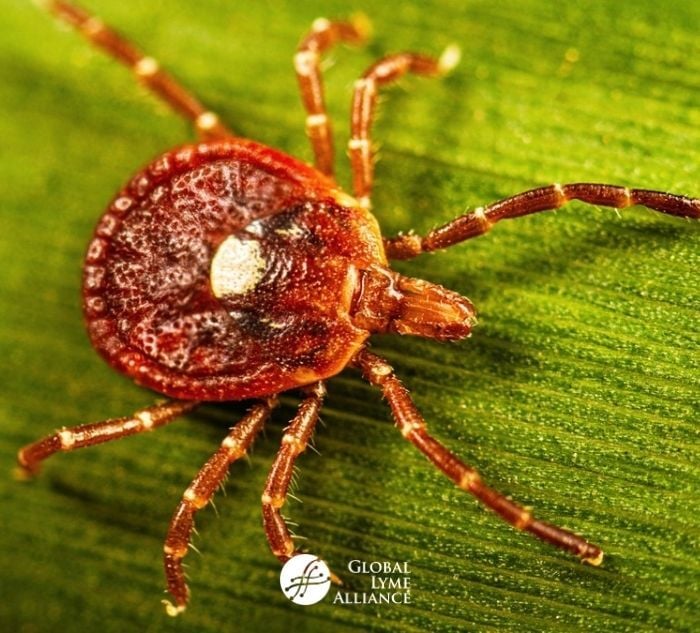
Jennifer Crystal addresses questions on Lyme disease symptoms, including extreme thirst, aggression, and cardiac issues, offering insights and advice for managing these challenges.
Dear Lyme Warrior…every few months, Jennifer Crystal devotes a column to answering your questions. Do you have a question for Jennifer? If so, email her at: lymewarriorjennifercrystal@gmail.com
You’ve written about extreme thirst with Lyme disease. Did that cause kidney issues that showed up on lab work?
Excessive thirst was one of my most persistent symptoms of Lyme disease, babesiosis, ehrlichiosis, and chronic active Epstein-Barr virus. But the thirst was not caused by kidney issues; it was caused by low thyroid and low adrenal function brought on by the combination of illnesses. My body was working really hard to fight illness and process toxins and medications, which probably also contributed to my need for more water than the average healthy person. My kidney function was fine, but low adrenal function and low thyroid did show up on blood work. My excessive thirst has decreased as I’ve been in remission, though I do still drink a lot of water (always being careful to balance it with electrolyte water so that my sodium and potassium levels stay normal).
Can people with Lyme disease become physically aggressive?
If Lyme disease crosses the blood-brain barrier in later stages of disease, the infection gets into the nervous system and can cause of host of neurological symptoms. These include but are not limited to brain fog, sleep disturbances, burning extremities, nervous system inflammation, and facial palsy. Lyme disease can also cause psychiatric symptoms like mood swings and erratic behavior, and can lead to anxiety and depression. Psychiatrist Bernard Raxlen, M.D. notes in his book Lyme Disease: Medical Myopia and the Hidden Global Pandemic that Lyme’s psychiatric manifestations can also include instability, rage response, or psychotic symptoms.[i] Any of these symptoms, coupled with the pain and fatigue of Lyme disease, could possibly lead to someone becoming physically aggressive.
Is high blood pressure a result of Lyme disease?
Lyme disease can cause cardiac problems, known as Lyme carditis. These can include shortness of breath, light-headedness, heart palpitations, chest pain, costochondritis, tachycardia, bradycardia, heart block, and myopericarditis. Lyme can also cause postural orthostatic tachycardia syndrome (POTS), when moving from lying to standing causes an increase in heart rate by at least 30 beats per minute for adults and 40 beats per minute for children. Among other symptoms, POTS is also characterized by the absence of orthostatic hypertension, meaning the blood pressure does not drop when the heart rate rises.
Lyme disease can certainly impact heart rate and blood pressure, but you should not assume your high blood pressure is a result of Lyme disease. The first step is to be checked for Lyme carditis by a Lyme Literate Medical Doctor (LLMD). If you have high blood pressure and you also have Lyme disease—even if you have Lyme carditis—the two may not necessarily be linked. As Lyme warriors, we can sometimes get so focused on Lyme that we associate all symptoms with it, which can lead us to overlook other medical issues (for more, see my blog post “Keeping the Big Picture in Mind: Don’t Overlook Your Other Health Issues”). Be sure to talk to your primary care doctor about any other causes of high blood pressure.
[i] Raxlen, Bernard, MD with Cashel, Allie. Lyme Disease: Medical Myopia and the Hidden Global Pandemic. London: Hammersmith Health Books, 2019 (121, 120).
***

Jennifer Crystal
Writer
Opinions expressed by contributors are their own. Jennifer Crystal is a writer and educator in Boston. Her work has appeared in local and national publications including Harvard Health Publishing and The Boston Globe. As a GLA columnist for over six years, her work on GLA.org has received mention in publications such as The New Yorker, weatherchannel.com, CQ Researcher, and ProHealth.com. Jennifer is a patient advocate who has dealt with chronic illness, including Lyme and other tick-borne infections. Her memoir, One Tick Stopped the Clock, was published by Legacy Book Press in 2024. Ten percent of proceeds from the book will go to Global Lyme Alliance. Contact her via email below.







-2.jpg)